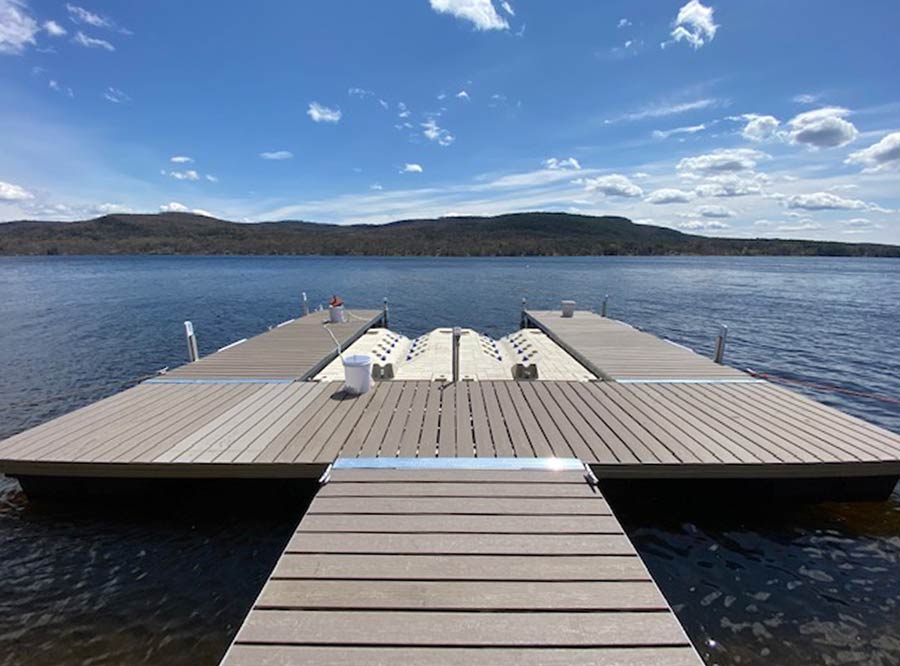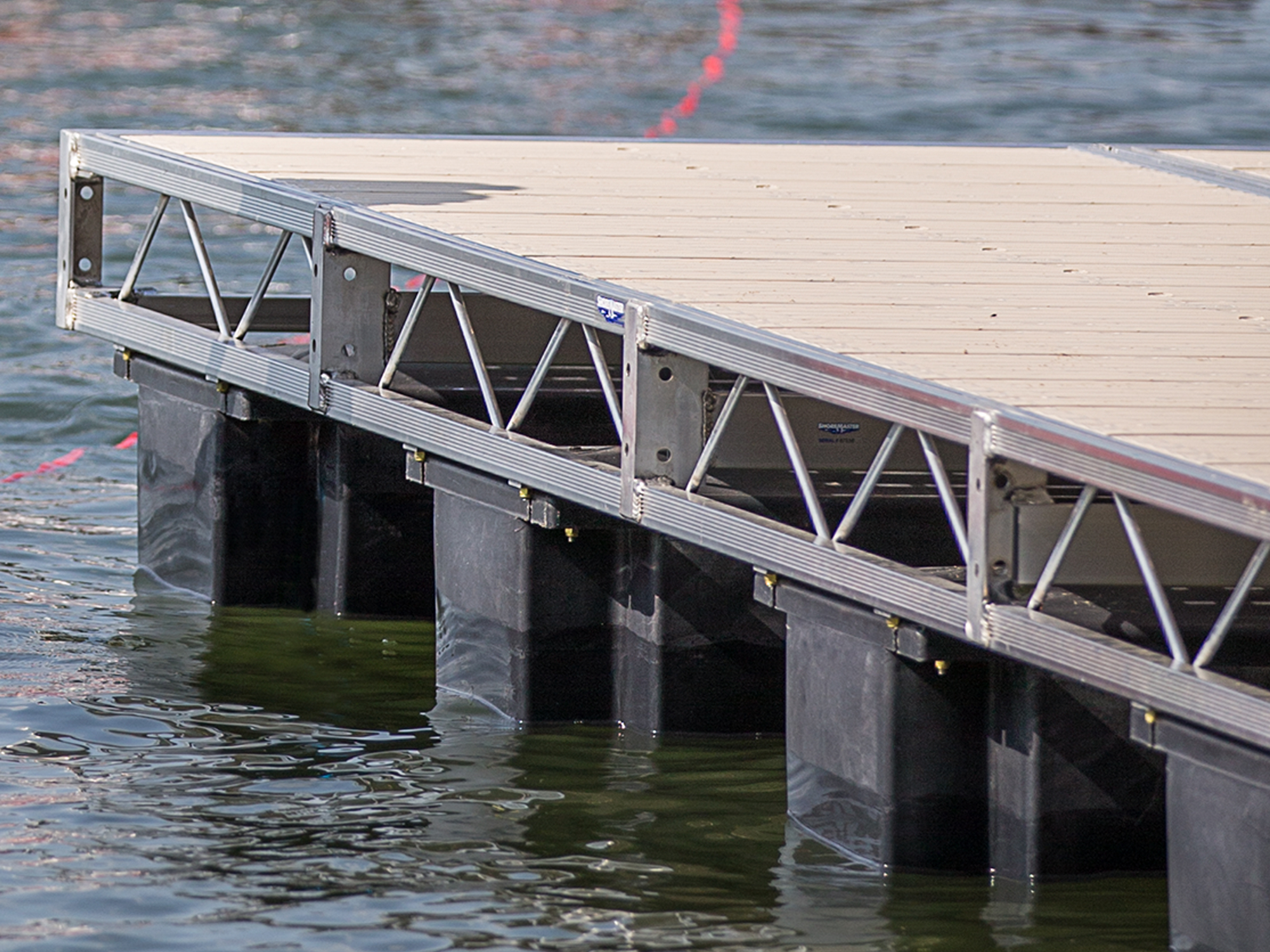Floating Docks: The Suitable Selection for Versatile Water Accessibility
Floating docks present an engaging remedy for a selection of water accessibility requires, offering flexibility that goes beyond standard mooring alternatives. The modular nature of floating docks assists in modification, providing to specific requirements.
Benefits of Floating Docks
Floating docks deal numerous advantages that boost water access for various applications. Their capacity to climb and fall with changing water levels makes them particularly beneficial in settings with varying tides or seasonal variants. This adaptability guarantees that vessels can conveniently anchor without issue for the water's depth, providing a reputable platform for leisure, commercial, and industrial usages.
Additionally, floating docks are typically built from long lasting materials that resist rust, making them suitable for long-lasting usage in marine environments. Their installation is normally less intrusive than typical set docks, minimizing the ecological impact and helping with quicker release (floating dock company). This flexibility enables less complicated moving or reconfiguration according to user requirements or ecological adjustments
Safety is an additional vital advantage; floating docks can give secure accessibility for people getting off or boarding from boats and minimize the threat of accidents related to unsteady surfaces. Furthermore, they can be designed to accommodate a variety of accessories, such as fenders and cleats, improving capability. In general, floating docks stand for an efficient option for improving water gain access to across varied sectors while promoting safety and environmental sustainability.

Sorts Of Floating Docks
Different kinds of floating docks provide to different needs and atmospheres, each made with details features to optimize performance. One of the most usual types include modular docks, which include interlocking sections that allow for easy customization and growth. These docks are optimal for recreational usage, as they can be tailored to fit numerous watercraft dimensions and water problems.
Another popular alternative is the stationary floating dock, which stays anchored in position but floats with altering water levels. floating dock services. This kind is particularly fit for locations with very little tidal changes, providing secure access for angling or swimming. Furthermore, there are drive-on docks, which include a sloped layout that allows watercrafts to quickly drive on and off, making them appropriate for personal watercraft and smaller vessels
For industrial applications, durable floating docks are offered, built from strengthened materials to hold up against substantial loads and severe marine environments. Last but not least, green floating docks use sustainable materials and styles to lessen ecological effect, often integrating features like plant life to sustain local wild animals. Understanding the various types of floating docks makes certain that users can choose one of the most appropriate remedy for their specific needs.
Setup Refine Overview
A successful setup of floating docks requires mindful preparation and focus to detail to make certain optimal performance and safety. The preliminary step entails assessing the website problems, consisting of water deepness, current, and prospective barriers. This assessment notifies the option of the suitable dock materials and design tailored to the details setting.
Next, getting essential licenses is essential, as several jurisdictions have regulations concerning construction on water bodies. The installation can proceed as click for more info soon as authorizations are secured. Begin by preparing the structure, which might involve anchoring systems or pilings tailored to the dock kind and local problems.
Following the structure setup, assemble the dock sections according to supplier specifications. Ensure that all parts are safely fastened and aligned to stand up to environmental anxieties. Placement the dock in the marked location, guaranteeing it is level and secure.

Upkeep Tips and Finest Practices
After the installation process is complete, continuous upkeep plays an essential role in making certain the durability and functionality of floating docks. Normal examinations should be carried out to identify any kind of indications of wear, damage, or damage - floating dock services. Examine for any type of loosened installations, fractures, or separation in the dock sections, as these can jeopardize architectural integrity
Cleaning the dock is important to get rid of particles, algae, and various other build-up that can influence its appearance and safety. Make use of a gentle stress laundry regularly to maintain tidiness without triggering damage to the surface. In addition, applying a safety sealer every couple of years can aid boost longevity and stand up to environmental wear.
Focus on the mooring lines and supports, guaranteeing they are safe and free from rust. Replace any type of degraded parts quickly to stay clear of hazards. Seasonal adjustments might also be required; during extreme climate condition, strengthening the dock or rearranging can stop damages.
Applications for Floating Docks
Floating docks serve a wide range of applications, accommodating both commercial and leisure needs. In recreational settings, they provide seamless access to waterways for activities such as boating, angling, and swimming. Their flexible nature permits setup in varying water levels, ensuring stable and secure gain access to no why not try this out matter tidal variations.
Commercially, floating docks are indispensable for marinas and waterside services. They promote the docking of vessels, enabling efficient discharging and filling of items. Their modular style permits easy development or reconfiguration to accommodate transforming service needs, making them ideal for watercraft rentals, tour operations, or angling charters.
Furthermore, floating docks are utilized in environmental applications such as water research and habitat repair. They can function as platforms for clinical research studies, keeping an eye on water top quality, or carrying out wild animals studies without disturbing delicate ecological communities.
In industrial contexts, floating docks are utilized in building tasks, giving accessibility to hard-to-reach areas for tools and personnel. Their versatility, toughness, and marginal influence on the atmosphere make them an optimal choice for a variety of applications, improving both functionality and accessibility in various water-based atmospheres.
Final Thought
In conclusion, floating docks stand for an optimal remedy for varied water access requires, owing to their flexibility, longevity, and modular style. Floating docks offer as a beneficial asset for recreational, commercial, and ecological jobs, making certain dependable accessibility to rivers and promoting lasting practices in water environments.
Floating docks present a compelling solution for a range of water access requires, offering convenience that transcends typical mooring options.Floating docks offer countless advantages that improve water accessibility for numerous applications. Overall, floating docks stand for an effective remedy for enhancing water access across diverse markets while advertising safety and security and ecological sustainability.
An additional popular choice is the fixed floating dock, which continues to be secured in area yet drifts with changing water levels.In final thought, floating docks stand for an optimal option for diverse water access official website needs, owing to their versatility, longevity, and modular layout.